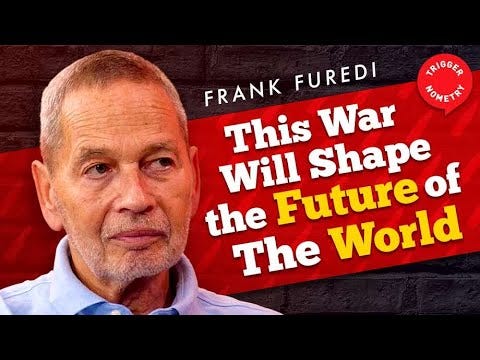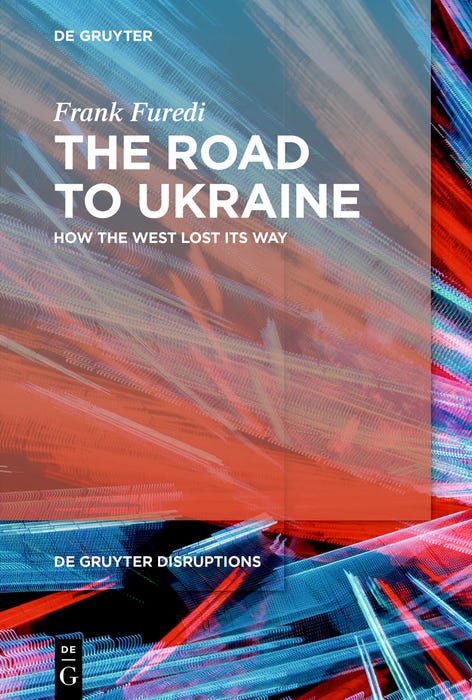Ukraine And The Revenge Of History
The war in Ukraine has settled into what appears as a never ending frontier war. I discuss the key issues surrounding this conflict with the TRIGGERnometry team.
To understand what’s at stake in the war it is essential to grasp the role of History.
Revenge of History
It has all happened very, very quickly. Following Russia’s invasion of Ukraine a little over two weeks ago, it has suddenly become painfully clear that the end of the Cold War did not mark the beginning of an era of permanent peace after all.
For too long we have deceived ourselves that this was a new era. That the past could be left behind. But no more. The tragic events in Ukraine remind us that history cannot be unmade and that sooner or later we have to come to terms with its inescapable truth.
Back in 2014, when I published First World War: Still No End In Sight, many commentators sniggered at the suggestion that this bloody conflict still exercised any influence over our lives. They pointed to the end of the Cold War and presented it as the end of history. Up to now, this has been a widespread sentiment. As the historian Mark Mazower once put it, the collapse of the Soviet Union in 1989 brought an end to ‘the whole era of ideological rivalries which began in 1917′
This sense that history, replete with national conflict and political struggle, has ended is reflected in the proliferation of the prefix ‘post-’. Alongside terms like post-industrial and postmodern, we now have post-historical, post-national and post-border. This prefix serves a profound purpose – it separates the present from history itself. As literature professor Brook Thomas put it, ‘post-’ denotes ‘an age in which everything has always already occurred’ (2).
Since the Covid pandemic this ‘post-‘ sensibility has been most systematically expressed through the idea of the New Normal. For advocates of the New Normal, Covid marked the beginning of a fundamentally different era. As Jennifer Ashton, author of The New Normal (2021), says, ‘We will never be the same again’. She assumes that life as we have known it in the past has come to an end. Such a view projects a sense of historical closure and terminus. The old ways have become redundant in the new world of the New Normal.
Yet, as is now clear, the old normal has not gone away. The present is not free of the past. And history has not ended. The kind of war that many Europeans believed would no longer blight their continent has suddenly erupted with a vengeance.
Some have interpreted Russia’s invasion of Ukraine as the end of the ‘old world order’. But this view reflects an illusion about the stability of the globalist post-Cold War era. The war in Ukraine shows that we are never done with the past. The very difficult questions raised and re-raised during a succession of violent conflicts are still in search of satisfactory answers. As the war is now demonstrating, history has the capacity to remind us that, unless we take it seriously, humanity will be in big trouble.




